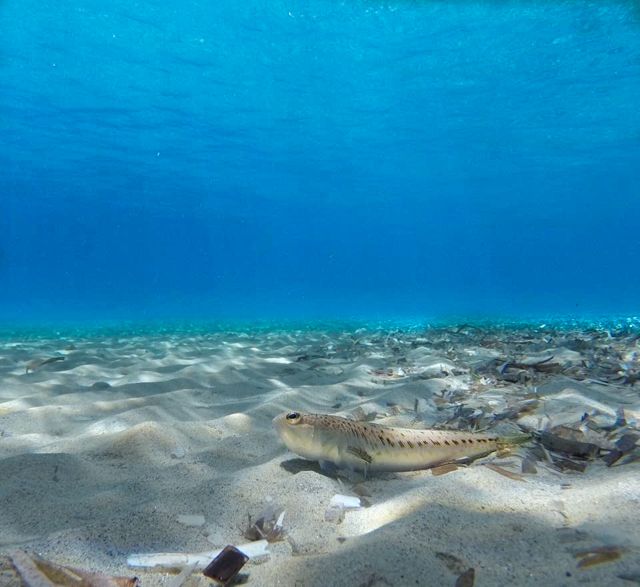While the hot summer weather invites for a dip in the ocean, authorities warn swimmers to be careful of the large invasive greater weever – a large poisonous fish that can hide beneath the sand.
Large amount this year
The number of fish that have been spotted this year has been unusually high – especially in northern Zealand near the shores of Øresund and Storebælt.
“If you visit the shores of northern Zealand and walk into the ocean at the right time, within a few metres you’ll be able to see hundreds of greater weevers lying closely together in the sand,” said marine biologist Jens Peder Jeppesen, the head of the Øresund Aquarium.
“So, the amount of fish is pretty extreme compared to previous years.”
Poisonous spikes
The fish is covered with poisonous spikes that are painful to the touch to humans.
“If you’re stung, it will be exceptionally agonising. Sometimes, swimmers in deep waters can get so shocked by the pain, they almost drown,” said Jeppesen.
Since the fish often digs itself into the sand, it can be practically impossible to notice.
Take precautions
The authorities encourage people to learn about the greater weever’s behaviour and to take precautions before jumping into the water.
“When a foot is above the fish, it’ll raise the spikes so they go into the foot if you step on it. A good method to avoid it is to buy a pair of bathing shoes,” said Jeppesen.
The greater weever tends to be scared away by activity in the water, so it might also be a good idea to not be the first to go in.














